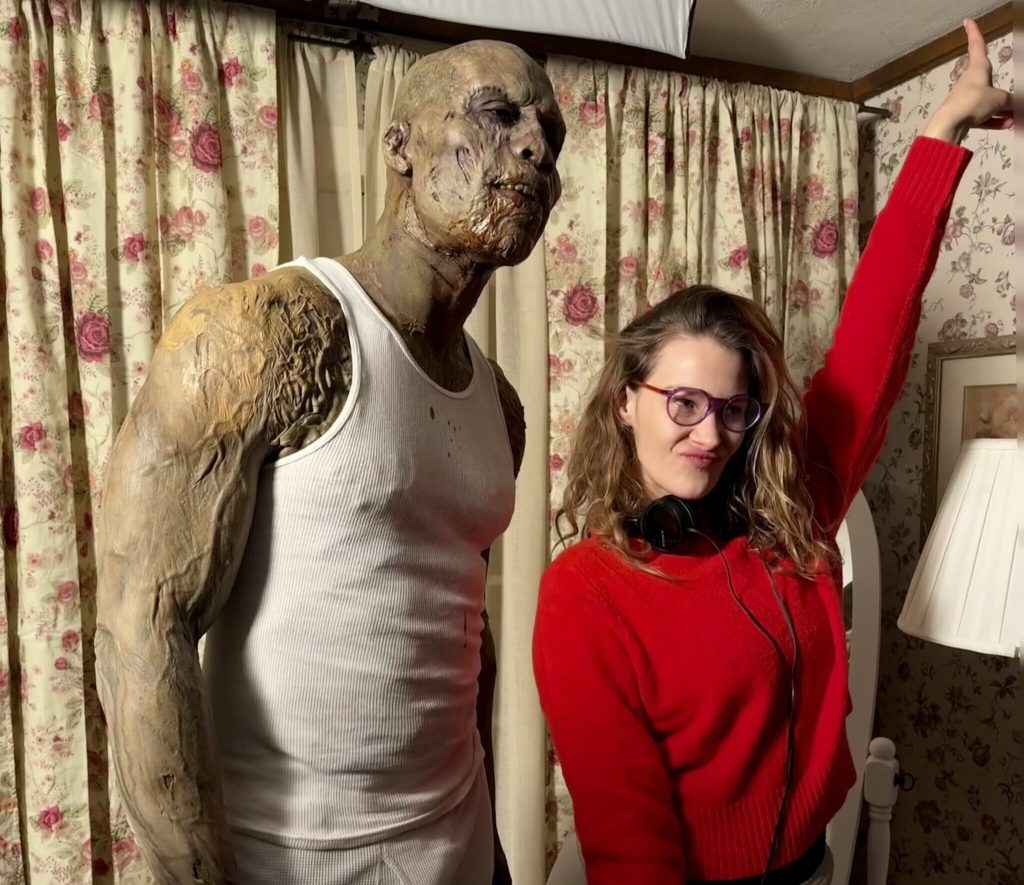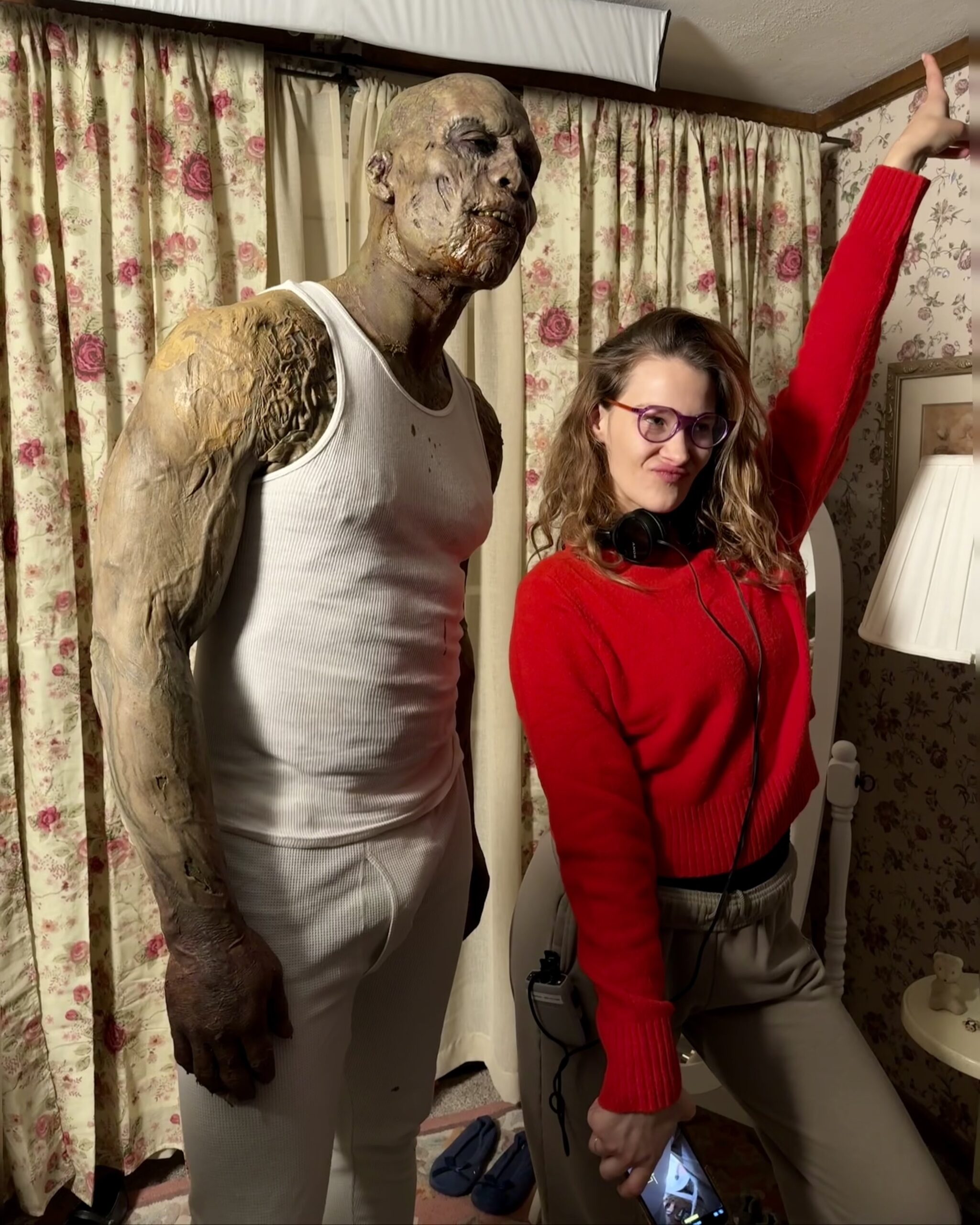
Photos courtesy of Destry Allyn Spielberg.
Destry Allyn Spielberg never wanted to make a zombie movie. In fact, when she first heard her manager describe the script for Please Don’t Feed the Children, her directorial debut, she pushed it to the bottom of the pile. But when every other script left her cold, she finally cracked it open. Suddenly, everything shifted. What transpired was more than just a zombie movie but a chilling, atmospheric fable about loss and survival amidst a viral outbreak. Shot in just 18 days on a tight budget in Santa Fe, the film unites an ensemble of hungry newcomers with Michelle Dockery, and Giancarlo Esposito. “I personally love ensemble work,” Spielberg told her friend and fellow filmmaker Bradley Cooper on a Zoom call earlier this month. “That’s when you get really great performances because you’re getting real reactions from characters working together.” To mark the occasion, they got to talking about casting, kill shots, and how, with a last name as acclaimed as “Spielberg,” Destry carved out her own lane.
———
ALLYN SPIELBERG: Okay, hi.
COOPER: Yo.
ALLYN SPIELBERG: How’s it going?
COOPER: It’s good. I just watched your movie.
ALLYN SPIELBERG: Oh, good.
COOPER: What a film. Jesus! Was that all one lens?
ALLYN SPIELBERG: We used a couple vintage lenses, but we primarily used the ALEXA 35 with those lenses.
COOPER: So you had more than one lens. Was it a wide lens for most of the movie?
ALLYN SPIELBERG: It was a mix of both. We had two cameras, but they were both mostly wide lenses. Some of them were not wide. We kept it pretty simple because we were on a tight budget.
COOPER: Yeah, I really love the aesthetic. How many days did it take to shoot this film?
ALLYN SPIELBERG: Dude … 18.

COOPER: That’s crazy.
ALLYN SPIELBERG: Never again.
COOPER: That’s insane that you achieved that. What were your hours like each day?
ALLYN SPIELBERG: Well, we didn’t go over the limit. One, because we couldn’t, and also they were tight. The whole thing was really set up like a play because we didn’t have any room or money. We just couldn’t add another day.
COOPER: Walk me through the origin of the movie. How did it come to you? Did you work with the writer?
ALLYN SPIELBERG: So I think I read like 25 scripts from WME, and there were a couple that I really liked, but nothing was really sticking. But my manager had sent me this one during the process and I put it to the side because he had described it to me as a zombie movie, and I just didn’t really want to make a zombie movie.
COOPER: And you didn’t.
ALLYN SPIELBERG: No, not at all. When he said zombie, I wasn’t going to read it. But I read it last because I wasn’t really into any of the scripts from WME. I read it really quickly because it was such an easy read, and immediately called my manager like, “I think we should do this one.” I like a challenge. And I knew that this wasn’t going to be a simple first feature to make. And yeah, I worked with the writer from when I got it until we were on set.
COOPER: So you read it and you took it for the challenge?
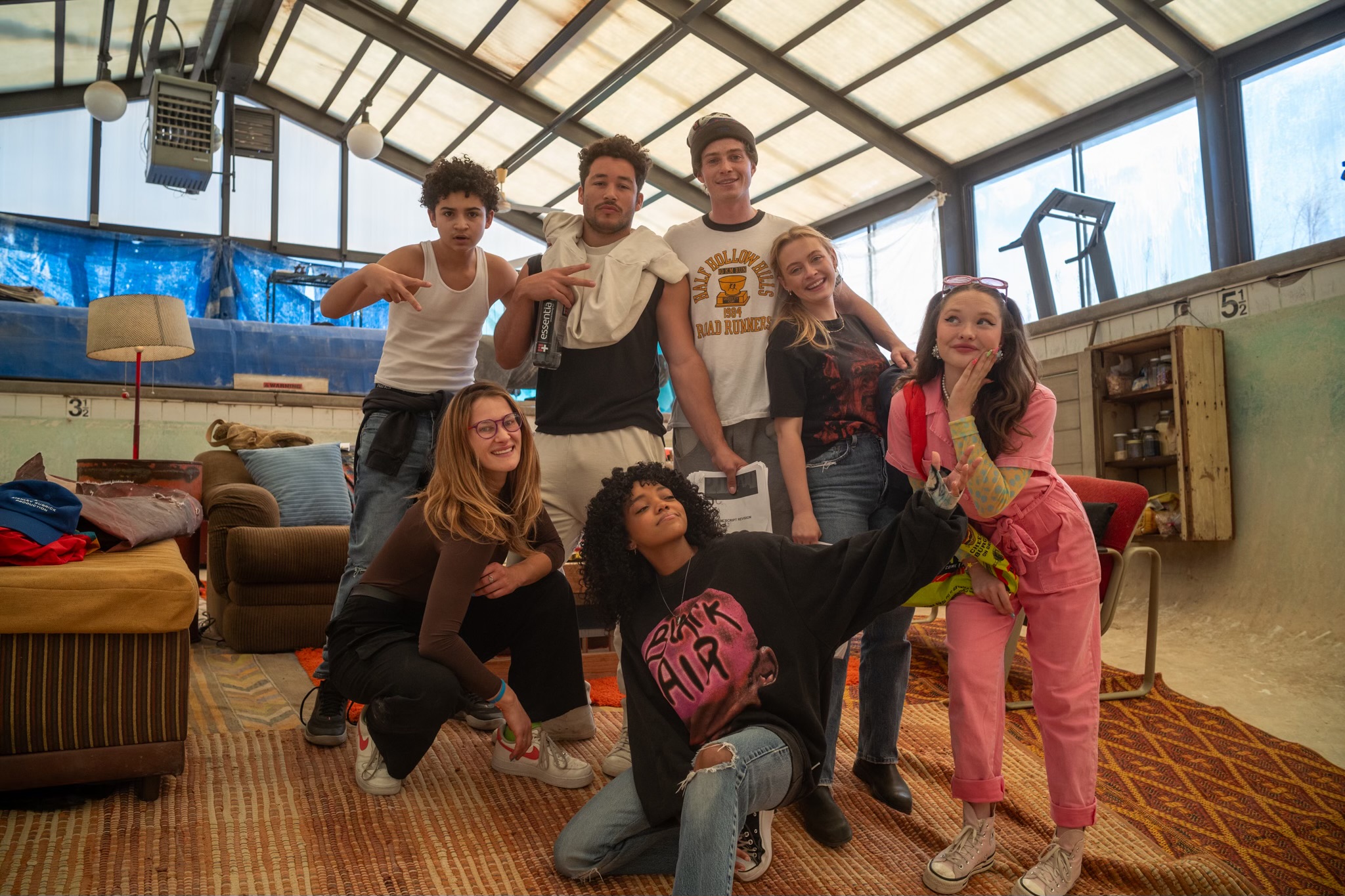
ALLYN SPIELBERG: Yeah, and I also took it for the heart of the story. It wasn’t really written as a zombie movie, because the zombie is the surprise at the end. I also knew that this was the first movie and it wasn’t financed yet. So in my head I was like, “How are we going to get enough money for a zombie movie?” Because it’s expensive. I mean, the special effects are insane. One big thing you learn when in the process of just making movies in general is that VFX is so, so expensive. Our goal was to really try and do everything practically.
COOPER: Where did you shoot this?
ALLYN SPIELBERG: Santa Fe.
COOPER: Oh, Santa Fe. And when the script came to you, were there any actors attached or did you cast all these people?
ALLYN SPIELBERG: No, we cast everyone.
COOPER: It’s really well cast. Wow, those actors.
ALLYN SPIELBERG: Thank you. Yeah, Zoe Coletti, the girl who plays Mary, my dad actually watched Only Murders [in the Building] and he was like, “Hey, you should look at this girl.”
COOPER: Who was she in that?
ALLYN SPIELBERG: She played the granddaughter of Steve Martin’s character. She sent us a self-tape and it was so good, I didn’t even see anyone else for that part.
COOPER: She’s incredible. The woman, the matron of the house, how did you cast her? She was awesome.
ALLYN SPIELBERG: Yeah, Michelle Dockery is incredible. We had a couple people who were interested, but we had sent her the script and I had my Zoom with her and it made total sense, because my idea for that character was based off of Coraline and the Other Mother. I wanted her to be tall and dark hair, lanky–she needed to tower over the kids. Michelle Dockery just fit perfectly.
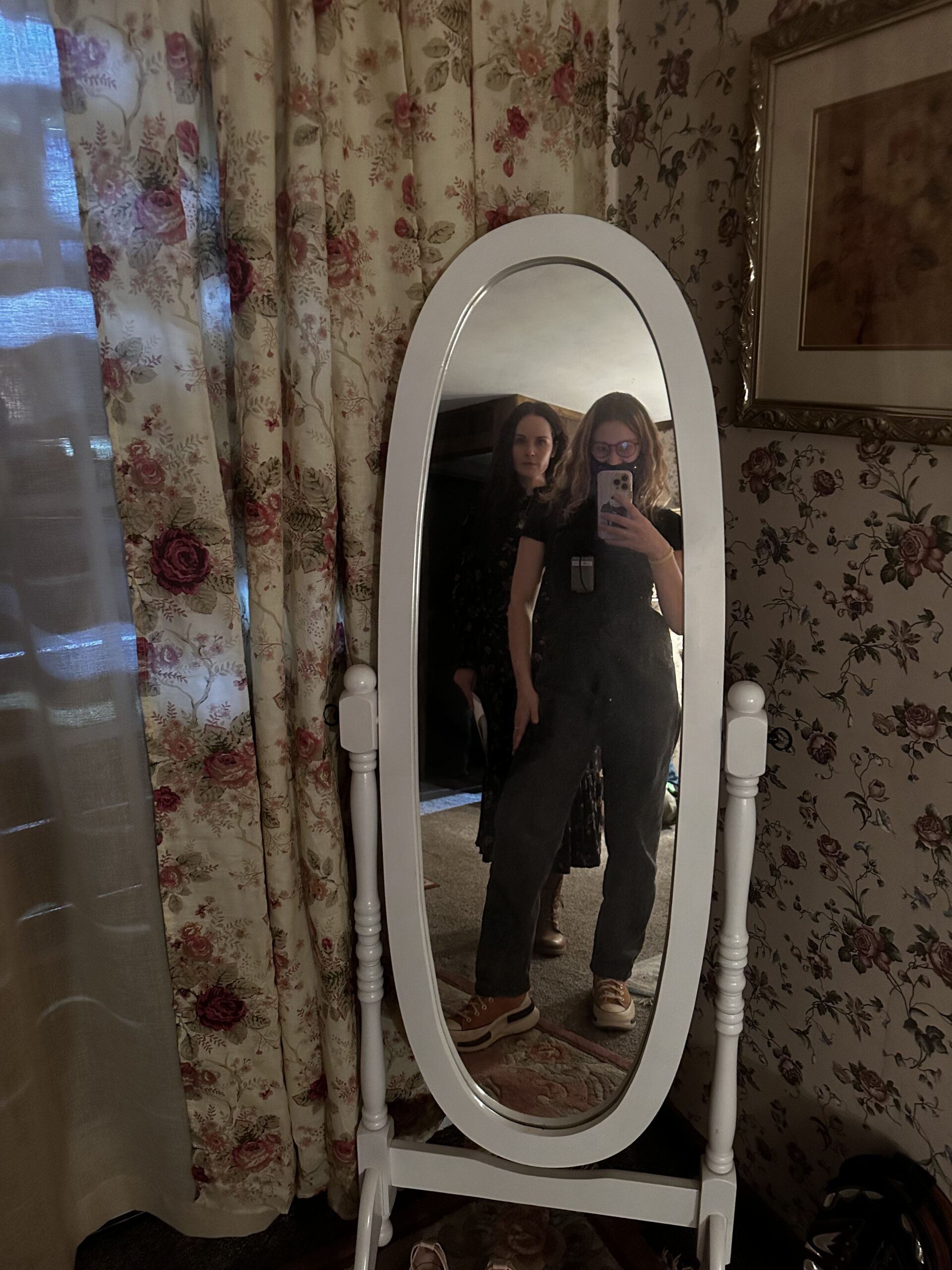
COOPER: Yeah, I really liked that character’s relationship with Giancarlo Esposito’s character. I thought that was really cool. And she so effortlessly kills him.
ALLYN SPIELBERG: I know, just like one shot. That’s it.
COOPER: Clearly they have so much history and care for each other and then just… nothing.
ALLYN SPIELBERG: Yeah, she got crazy. I mean, she’s crazy, but she just kept getting crazier and crazier.
COOPER: And talk to me about Giancarlo’s character. He’s so wonderful. How did that happen, casting him?
ALLYN SPIELBERG: My manager, Josh Kesselman, reps him as well. And honestly, we were so lucky to get him because, obviously he was interested, but it was also a favor because we would not be able to afford him. I met him and we went through the script and made notes together, because he’s a smart writer when it comes to dialogue and character. But he was really a team player. I love when actors that can step onto an indie film and treat it like how I hope all filmmakers get to experience a set, which is like summer camp for adults. The magic of moviemaking, I think, gets lost in this industry so often.
COOPER: Those kids, were they all actors or were there a lot of non-actors?
ALLYN SPIELBERG: No, they were all new actors. That was my goal, I wanted to cast as many new faces as possible.
COOPER: You said you did a lot of prep, but I just believed they were a group. I believe they’d all been through all that. And that’s so hard to pull off, especially when you’re shooting a lot of these dialogue scenes and at least two or three people are in one frame, everybody has to be present. Did you work with them before?
ALLYN SPIELBERG: I did a lot of work with them prior because again, they knew that this had to be treated like a play and they had to come to set fully prepared. And I definitely was like, “You guys need to go and do adventures together.” So we went to museums and we had dinners all together. I basically was like, “You guys are living together. You need to all hang out and become friends.”
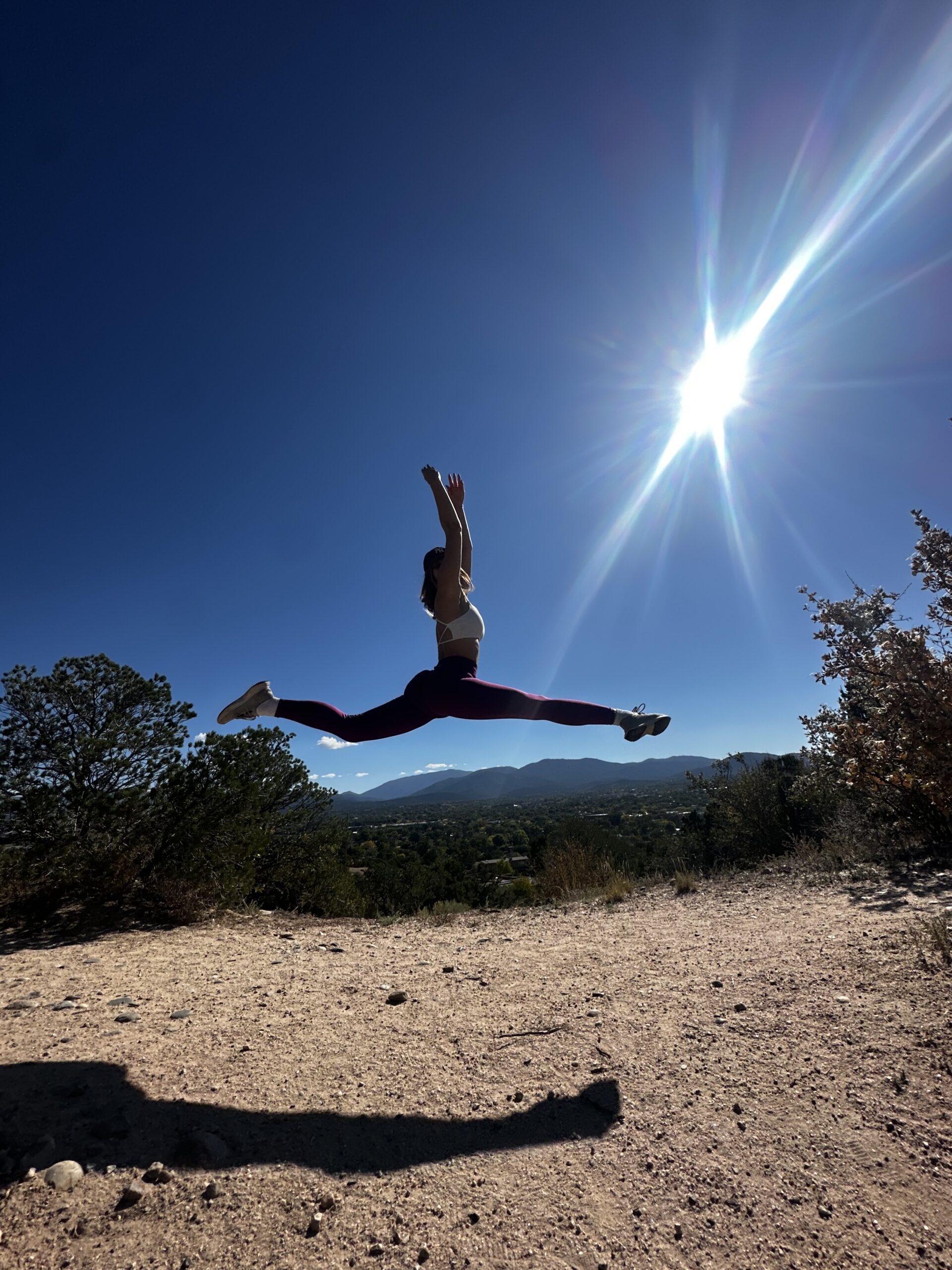
COOPER: That’s awesome.
ALLYN SPIELBERG: It’s fun to make a movie, even if it’s a dark movie.
COOPER: Yeah, I made one horror movie years ago and we laughed a lot.
ALLYN SPIELBERG: Surprisingly there’s a lot of comedy within horror, and especially if you’re trying to keep it very serious. Sometimes you can’t help yourself, and you need comedic relief.
COOPER: I mean, this was a dark movie. I mean, it’s horror and it’s post-apocalypse and it’s a zombie and it’s misery.
ALLYN SPIELBERG: Yeah, misery was huge here.
COOPER: I felt that very much. Especially all the stuff in the house. It’s interesting, you keep saying the word play. Obviously, plays can have a huge setting and be winding, but it didn’t feel like a play. It felt like a big movie.
ALLYN SPIELBERG: Thank you. I mean, in terms of, when I say play, when it comes to blocking and working with the actors, I treat it like a play. We know exactly where we’re going to be on the day, and especially the actors were really about working on weekends and they would come over to the set and block scenes. That was really great, for them to be so willing to come and hang out with all of us. And also figure out how the scene’s going to work. Because it’s an ensemble and because there’s so many moving parts, I needed to block each scene specifically, so we had room to make changes with camera angles, or if I had an idea, I would be able to work around the actors. Oh, I think you froze.

COOPER: I lost you there for a second. Can you see me?
ALLYN SPIELBERG: I can see you.
COOPER: Yeah, your choices from pivoting from handheld to on a dolly, those are all perfect because that’s a tough thing. But all of your shot choices, your compositions… I was like, “what a filmmaker.” And your locations were amazing. I love that halfway house that was on a ramp and you had them at the top of the theater.
ALLYN SPIELBERG: The pool? That was a pool.
COOPER: It was amazing how you shot up to them like that, and that wide angle. It was like a 27 or something.
ALLYN SPIELBERG: It was funny too because I was like, “Mary needs to be at the bottom because they all need to feel like they’re ganging up on her.” So they slowly start coming down and she’s trapped in the deep end. We almost lost that location literally a week before filming, and then we went to go look at others, and I was like, “We cannot lose that location. We have to somehow get it because my creative brain right now is not able to process not working in that space.”
COOPER: Yeah, there’s certain things you have to fall on the sword for. And what’s next for you?
ALLYN SPIELBERG: I’m doing a murder mystery. I’m really excited for that one. We’re supposed to start shooting in October, but we’re still trying to cast this one role. I mean, again, that’s indie filmmaking. We’re fully financed, but we just need that one actor to greenlight us. It’s been tough.
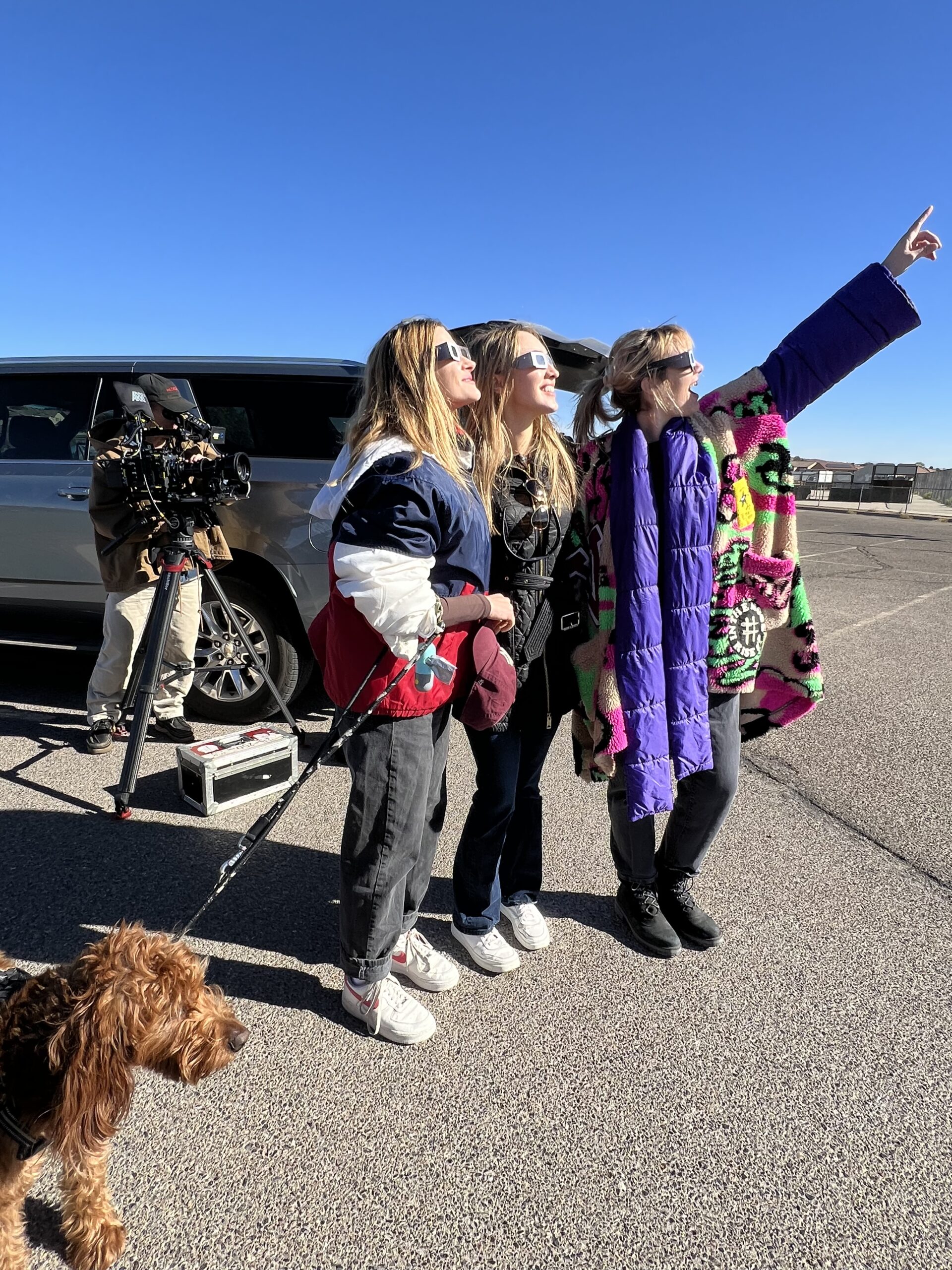
COOPER: Murder mysteries, is this another ensemble?
ALLYN SPIELBERG: Yeah. And that’s actually a big part of why we’re having trouble finding this one character because actors, from what I’ve learned, want to be the lead and that’s it. No one really wants to be an ensemble right now. I personally love ensemble work. That’s when you get really great performances because you’re getting real reactions from characters working together. But we’ll find our guy.
COOPER: And walk me through the editing process. When you wrap, do you take a break or do you go right into it?
ALLYN SPIELBERG: I go right into it, but on this next one I think I’m going to take a break. I would consider myself a workaholic. I don’t do well when I don’t work for longer than a week. Next time, I definitely need to step back because it’s like painting. If you keep painting and painting and painting and you don’t take a step back, you’re going to end up ruining it because you’re not going to be able to see what you’re missing. You need that time to absorb and to think. And then once you come back, you’re able to view it with a fresh mindset.
COOPER: Have you always known you wanted to direct?
ALLYN SPIELBERG: No. I mean, as a kid growing up, whenever I had my friends over, we’d make movies. That’s what I did for fun.
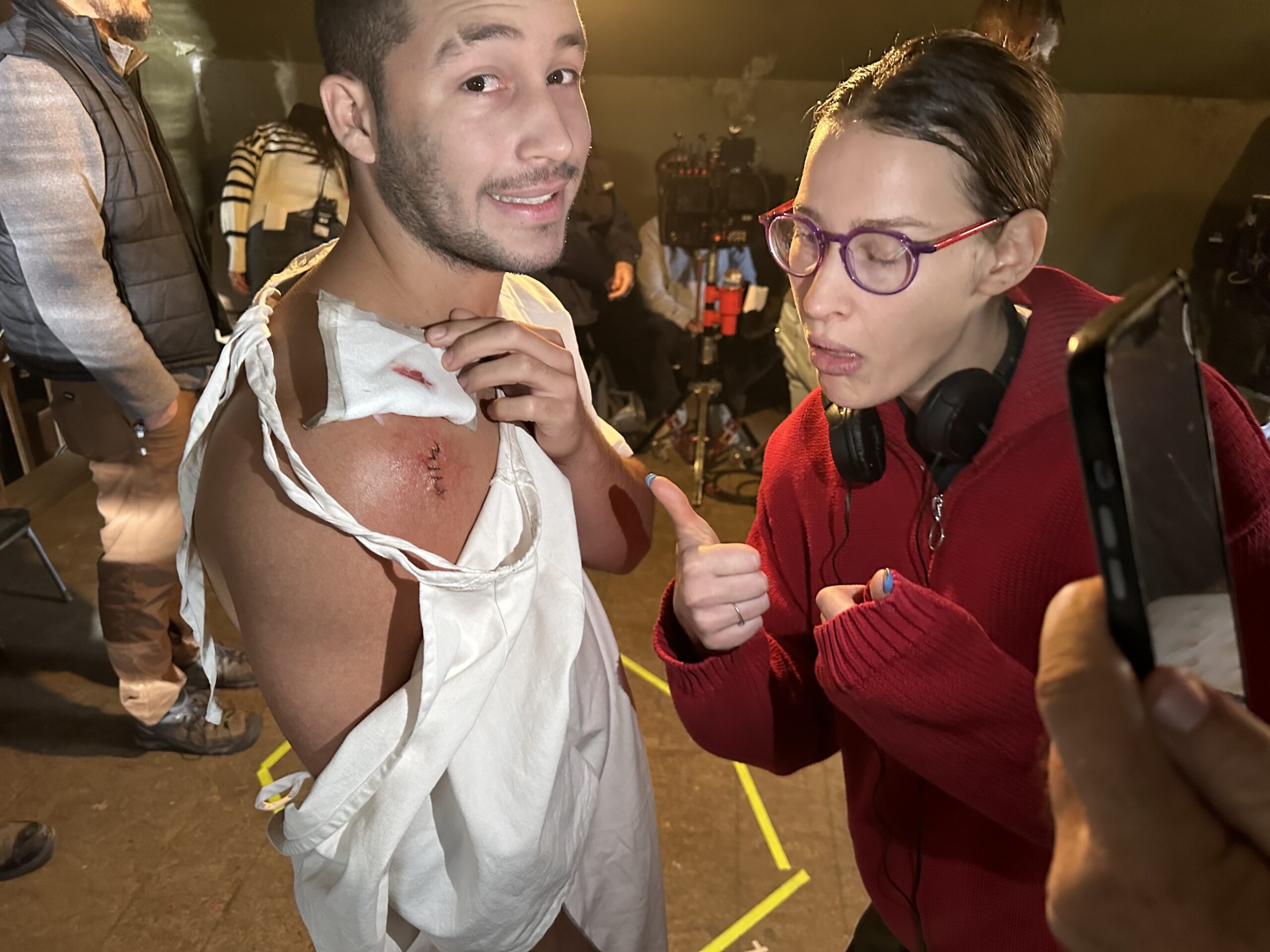
COOPER: Oh, you would?
ALLYN SPIELBERG: Oh, yeah. I didn’t grow up with social media. That came when I was 14, 15. So all the years before, I’d have all my friends come over and we’d just make a movie. I mean, the amount of home movies that I have, and they’re so silly. I’d always put myself in the movies too. And then when I wanted to act, you don’t book anything, and it’s frustrating. Every actor goes through it. Or you get so close and you don’t book it. That was like the last straw. I was like, “I’m going to write a short film and I’m going to make it with my friend.” We ended up making a short film called Rosie that we both acted in because we were going to use it as a reel. We didn’t really know who would direct it, and we didn’t know if we could afford a director. So I was like, “Well, why don’t I just direct it?” Which was wild because I had no idea what I was doing.
COOPER: How old were you at this point?
ALLYN SPIELBERG: Oh man, I think I was like 21.
COOPER: Okay.
ALLYN SPIELBERG: Then I stepped on set, and it was such a spiritual experience because it was as if something clicked in my brain and I just flew. It’s almost like I blacked out. It was a feeling of passion I hadn’t felt in a really long time for something that I didn’t even know I wanted to do. Of course I was definitely like, “I don’t want to do this. This is my dad’s job. I don’t want to take that from him or even try.” Not because I was intimidated, just because I grew up around it my whole life. But that experience was an immediate, “This is what I want to do. Fuck acting. I want to be behind the camera.”
COOPER: Is there anything else that you want to cover? I’m trying to think.
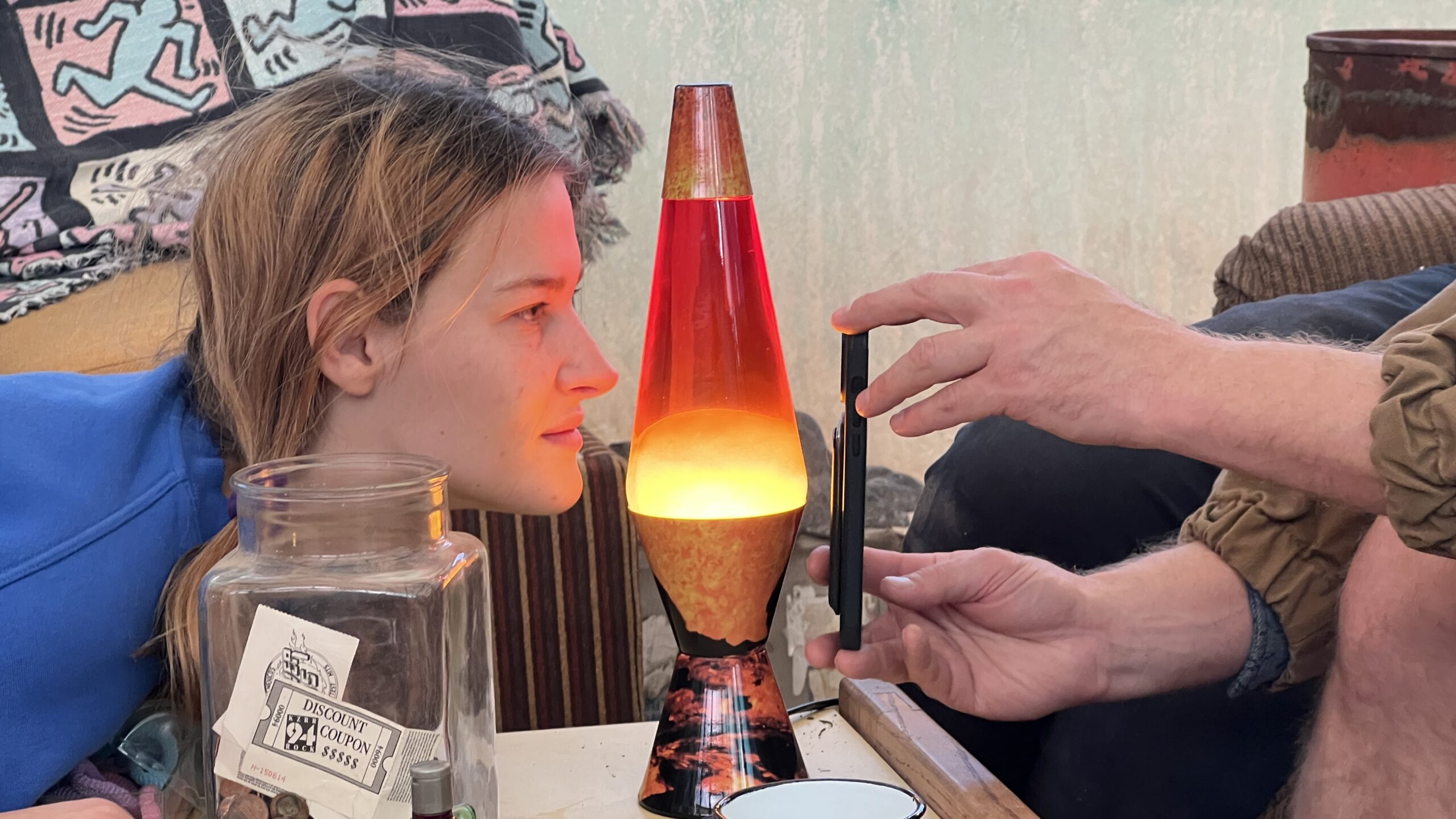
ALLYN SPIELBERG: I mean, I don’t know. You tell me.
COOPER: I think that feels good.
ALLYN SPIELBERG: Yeah, I miss you.
COOPER: It’s good to see you. Where are you? Are you in New York these days?
ALLYN SPIELBERG: Mm-hmm. Let’s get coffee and talk about other things than movies.
COOPER: For five minutes, then we’ll end up circling back.
ALLYN SPIELBERG: I know. I say that, and then we’re going to end up non-stop talking because I feel like there’s a lot of movies that I need to discuss with you.
COOPER: Well, this was awesome. Thank you and congratulations. I’m so glad I got to see it. Keep going.
ALLYN SPIELBERG: Thank you. We’ll keep on trucking.

